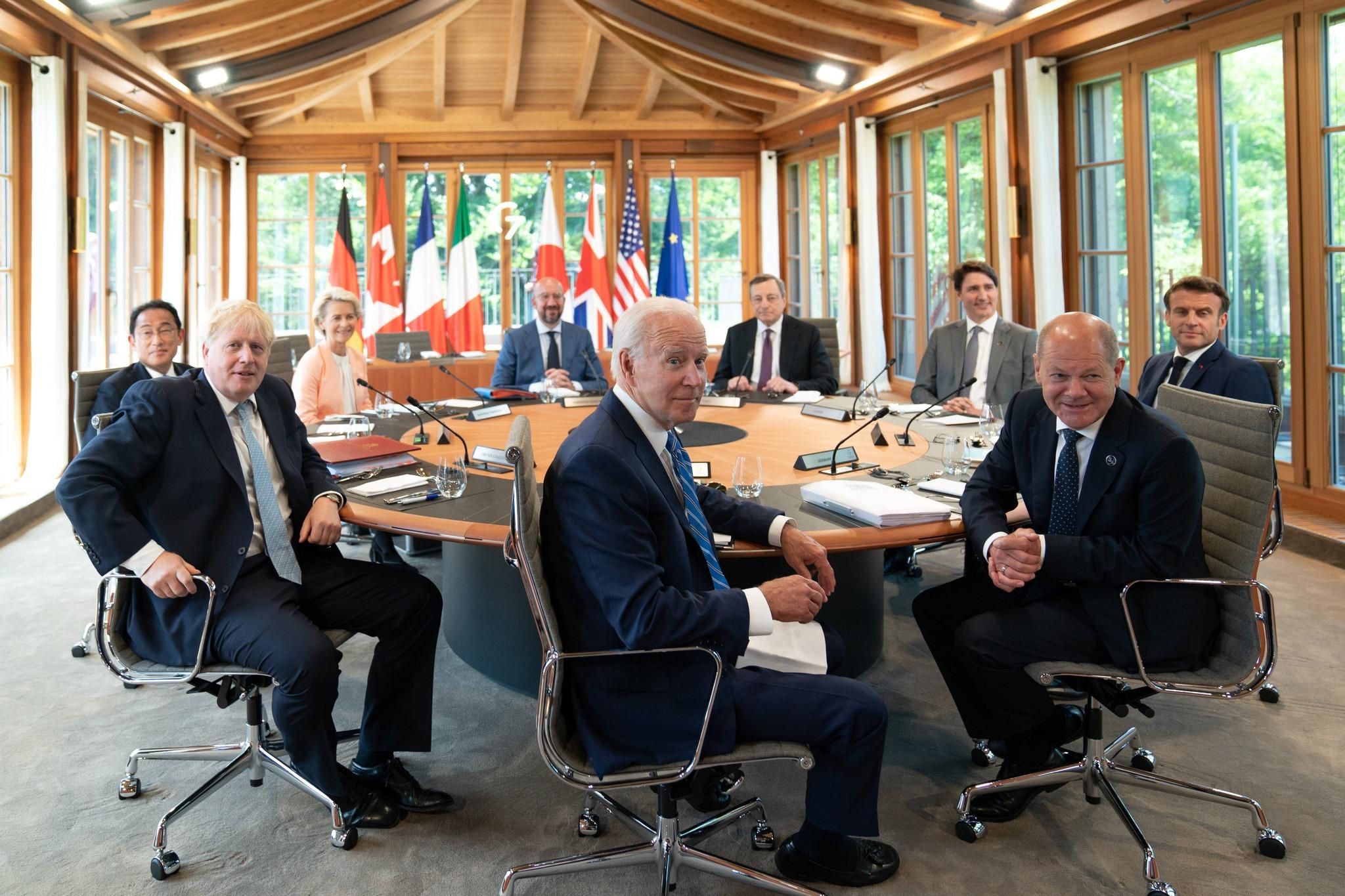G-7, NATO summits show Russia may “win” in Ukraine but will lose against a united West
All eyes were on Europe this week, where world leaders met in Germany’s Bavarian Alps for the G-7 summit before heading to Madrid for the NATO summit. Both gatherings were the most significant of their kind in over a decade, thanks to the Russian invasion of Ukraine and its threat to the international order.
The meetings, which are usually largely symbolic, had a few tangible outcomes.
The United States and its G-7 allies—the United Kingdom, France, Germany, Italy, Canada, and Japan—committed $4.5 billion to address the global food crisis caused by the war in Ukraine. They announced a ban on imports of Russian gold, one of Russia’s major pre-invasion exports. They imposed new sanctions curtailing Russia’s ability to import key inputs for its arms industry. There were discussions of setting a price cap on Russian oil, which if enacted would sharply dent Russia’s export revenues while at the same time maintaining global supply and potentially reducing global oil prices.
Want to understand the world a little better? Subscribe to GZERO Daily by Ian Bremmer for free and get new posts delivered to your inbox every week.
Turkey agreed to drop its veto on Finland’s and Sweden’s NATO membership bids (even though President Erdogan hedged a tad on his way out), mostly clearing the path for an expansion of the military alliance that would more than double the length of its border with Russia. NATO leaders agreed on a new strategic vision putting the alliance on a war footing—NATO is increasing its high-readiness forces from 40,000 to 300,000—and positioning Russia as the “most significant and direct threat to Allies’ security and to peace and stability.” Many NATO members including the United States also pledged increases in collective defense spending, additional troop deployments, and further military aid for Ukraine.
But the biggest takeaway was just how aligned advanced industrial democracies remain in support of Ukraine and in opposition to Russia. Despite the remarkable political weakness of their leaders and the mounting economic pain they are feeling as a result of their response to Russia’s aggression, these countries continue to show little daylight on Ukraine.
That’s not to say they all see exactly eye to eye on everything. The Americans and the Brits have a different position on, say, the appropriate level of military assistance than the Germans and the French. Every government has its own idea of how best to help Ukraine defeat Russia.
But the core desire to support the Ukrainian government, to ensure they can push Russia back, to punish the Russian regime and sever relations with them—that desire is shared by everyone in the West. Such a degree of agreement on any issue between leaders with wildly different ideologies, interests, and constraints was unthinkable before the Russian invasion of February 24. And as the war enters its fifth month, that unity is showing no signs of fraying.
Might cracks emerge going forward?
Despite facing staunch Ukrainian resistance, Russian forces now control 98% of the Luhansk region and about two-thirds of Donetsk. They will likely continue to make gradual gains in the Donbas in the coming months. The longer the war goes on and the more the U.S. and its allies get hit with high inflation and soaring energy prices, the more likely it is that support for Ukraine will eventually waver.
The reason Ukrainian President Volodymyr Zelensky called into the G-7 summit and said he wants the war to be over by wintertime is that he knows that come winter, his American and European counterparts are going to face enormous public backlash due to persistently high inflation and soaring food and energy prices. He rightly worries that six months from now, as the fighting on the ground settles into an unstable stalemate, Western leaders won’t have the political capital to sustain the level of support for Ukraine they were able to show in the first four months.
That’s why he is so adamantly pressuring the West to ramp up its military and financial aid before it’s too late: so that when international support for Ukraine inevitably dries up, the country is in the best position it can be to continue fighting and, eventually, to negotiate.
Make no mistake, over time support for Ukraine will diminish, and Russia will gain the upper hand. Ultimately, it is very likely that the Russians will end up in a better military and territorial position in Ukraine than they were before they invaded. They will have seized most of the Donbas, probably formally annexed it as part of Russia, and they will have a land bridge to Crimea.
At the same time, though, the longer the war goes on, the more leverage the Russians will lose vis-à-vis the West. There is no conceivable scenario in which Russia ends up in a better economic and geostrategic position than it was before February 24. Once the Russian economy is fully decoupled from the West, any power that Moscow once had over Western capitals will be gone for good.
Long term, the U.S. and its allies will adapt to the loss of Russian oil and gas. The same cannot be said of Russia’s ability to withstand the loss of not just export markets but also, most importantly, access to imports critical to its manufacturing and military capabilities.
While Russia may “win” in Ukraine, it will most definitely lose against the West.
🔔 And if you haven't already, don't forget to subscribe to my free newsletter, GZERO Daily by Ian Bremmer, to get new posts delivered to your inbox.
